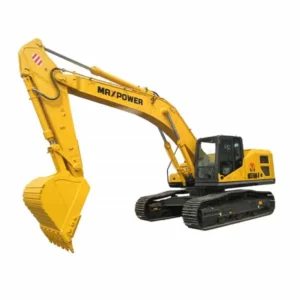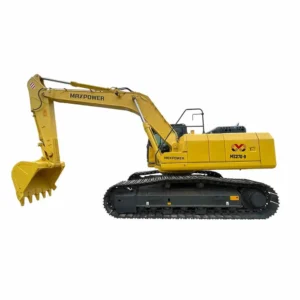Table of Contents
- Introduction
- Understanding the Excavator Hydraulic Pump
- Importance of the Excavator Hydraulic Pump
- Factors to Consider When Choosing an Excavator Hydraulic Pump
- Common Issues with Excavator Hydraulic Pumps
- Maintenance and Troubleshooting Tips
- Advancements in Excavator Hydraulic Pump Technology
- Environmental Considerations
- Conclusion
- FAQs
Introduction
Excavators are versatile machines used in various industries such as construction, mining, and agriculture. These heavy-duty machines rely on hydraulic systems to power their movements and perform tasks efficiently. One crucial component of the hydraulic system is the excavator hydraulic pump. In this article, we will delve into the world of excavator hydraulic pumps, exploring their functions, importance, common issues, maintenance tips, technological advancements, and environmental considerations.
Understanding the Excavator Hydraulic Pump

The excavator hydraulic pump is a critical component that plays a vital role in the operation of an excavator. Understanding how it works and its significance in the hydraulic system is essential for anyone involved in the industry.
At its core, the excavator hydraulic pump is responsible for converting mechanical power into hydraulic power. It accomplishes this by drawing in hydraulic fluid and creating a flow of pressurized fluid that can be directed to various parts of the excavator’s hydraulic system.
The hydraulic pump generates the necessary force and pressure that enables the excavator to perform its tasks effectively. This force is crucial for powering movements such as digging, lifting, and rotating. Without the hydraulic pump, an excavator would not be able to execute these actions with the required strength and precision.
There are different types of hydraulic pumps used in excavators, including gear pumps, piston pumps, and vane pumps. Each type has its own advantages and limitations, and the choice depends on factors such as the excavator’s size, operating conditions, and specific requirements.
Importance of the Excavator Hydraulic Pump
The excavator hydraulic pump holds immense importance in the overall functionality and performance of an excavator. It serves as the heart of the hydraulic system, providing the necessary power and force to carry out a wide range of tasks efficiently.
One of the key reasons why the excavator hydraulic pump is crucial is its role in powering the various movements and operations of the machine. Whether it’s digging, lifting, pushing, or rotating, the hydraulic pump delivers the required hydraulic pressure to actuate the cylinders and motors responsible for these actions. Without a reliable and high-performing hydraulic pump, the excavator would be unable to perform these tasks effectively.
The efficiency of an excavator heavily relies on the performance of its hydraulic system, and the hydraulic pump plays a significant role in determining that efficiency. A well-designed and properly functioning pump ensures a steady flow of hydraulic fluid at the right pressure levels, allowing for smooth and precise movements. This not only enhances productivity on the job site but also minimizes the time and effort required to complete tasks.
Another aspect that highlights the importance of the excavator hydraulic pump is its influence on the overall durability and lifespan of the machine. By delivering the required power and pressure, the pump reduces the strain on other hydraulic components, such as valves and actuators. This helps prevent premature wear and tear, prolonging the lifespan of these components and ultimately the entire excavator.
Factors to Consider When Choosing an Excavator Hydraulic Pump
When it comes to choosing an excavator hydraulic pump, several key factors need to be taken into consideration. Selecting the right pump is crucial for ensuring optimal performance, compatibility, and longevity of the hydraulic system. Here are some essential factors to keep in mind:
Pump Type: There are different types of hydraulic pumps available, including gear pumps, piston pumps, and vane pumps. Each type has its own advantages and limitations. Consider the specific requirements of the excavator, such as flow rate and pressure demands, to determine the most suitable pump type.
Flow Rate and Pressure Rating: The flow rate and pressure rating of the hydraulic pump should align with the operational needs of the excavator. It’s essential to choose a pump that can deliver the required flow of hydraulic fluid and maintain the necessary pressure levels for efficient operation.
Size and Compatibility: The size of the hydraulic pump should match the hydraulic system of the excavator. It should be compatible with the system’s components, such as valves, cylinders, and motors. Choosing a pump that seamlessly integrates with the existing hydraulic system ensures optimal performance and minimizes potential issues.
Manufacturer’s Reputation: Consider the reputation and reliability of the pump manufacturer. Research and seek feedback from industry experts or other excavator owners to ensure that the manufacturer has a track record of producing high-quality hydraulic pumps.
Operating Conditions: Take into account the specific operating conditions in which the excavator will be used. Factors such as temperature extremes, dust, and moisture levels can impact the performance and longevity of the hydraulic pump. Choose a pump that is designed to withstand these conditions and has appropriate sealing and protection measures.
Maintenance and Support: Consider the availability of maintenance and support services for the chosen hydraulic pump. Ensure that the manufacturer provides proper documentation, spare parts, and technical assistance. Regular maintenance and prompt support can help prolong the lifespan of the pump and prevent unexpected downtime.
Cost and Value: While cost is an important consideration, it should not be the sole determining factor. Assess the overall value and long-term benefits that a hydraulic pump can provide. A slightly higher upfront investment in a reliable and high-quality pump can result in lower maintenance costs and improved performance in the long run.
Common Issues with Excavator Hydraulic Pumps
Excavator hydraulic pumps, like any mechanical component, can encounter several common issues over time. Being aware of these issues and knowing how to address them promptly is crucial for maintaining optimal performance and minimizing downtime. Here are some common problems that can occur with excavator hydraulic pumps:
Fluid Leakage: One of the most prevalent issues is fluid leakage. This can occur due to worn seals, damaged hoses, or faulty connections. Fluid leakage not only leads to a loss of hydraulic fluid but can also result in reduced hydraulic pressure and performance. Regularly inspecting the pump and its connections can help identify and resolve any leakage issues.
Reduced Performance: Over time, an excavator hydraulic pump may experience reduced performance. This can manifest as slower movements, decreased lifting capacity, or sluggish response. Several factors can contribute to reduced performance, including worn internal components, contaminated hydraulic fluid, or improper pump adjustment. Proper maintenance, including regular cleaning, fluid replacement, and component inspections, can help address these issues and restore optimal performance.
Increased Noise Levels: Unusual or excessive noise coming from the hydraulic pump can indicate underlying problems. This may be caused by worn bearings, damaged vanes, or cavitation within the pump. Ignoring abnormal noises can lead to further damage and potential pump failure. It’s essential to address any unusual noise promptly by inspecting and repairing or replacing damaged components.
Overheating: Hydraulic pumps can overheat due to various reasons, such as excessive loads, inadequate cooling systems, or low fluid levels. Overheating can lead to reduced pump efficiency, increased wear on internal components, and ultimately pump failure. Regularly monitoring the pump’s temperature and ensuring proper cooling and fluid levels can help prevent overheating issues.
Contamination: Contamination of hydraulic fluid is a common problem that can affect the performance of an excavator hydraulic pump. Contaminants such as dirt, debris, or water can enter the hydraulic system and damage internal components, including the pump. Regularly changing and filtering the hydraulic fluid, as well as keeping the system clean, can help prevent contamination-related issues.
Maintenance and Troubleshooting Tips
Proper maintenance and troubleshooting are essential for ensuring the longevity and optimal performance of excavator hydraulic pumps. By following these tips, operators can prevent potential issues and address them promptly when they arise:
Regular Inspections: Conduct routine inspections of the hydraulic pump to check for signs of wear, leakage, or damage. Inspect the pump housing, seals, hoses, and connections. Look for any loose fittings or abnormal wear patterns. Regular inspections help identify potential issues before they escalate and cause significant damage.
Fluid Condition and Levels: Monitor the hydraulic fluid regularly, checking for proper levels and signs of contamination. Contaminated or low fluid levels can affect pump performance and lead to damage. Replace the hydraulic fluid as recommended by the manufacturer, and ensure it meets the required specifications. Use proper filtration systems to maintain fluid cleanliness.
Seal and Hose Maintenance: Inspect the pump seals and hoses for signs of wear, cracks, or leaks. Replace damaged seals or hoses promptly to prevent fluid leakage, which can affect pump performance. Ensure that the seals and hoses are properly aligned and secured.
Cooling System Maintenance: Pay attention to the cooling system of the excavator, as overheating can negatively impact the hydraulic pump. Clean or replace the cooling system components, such as radiators and fans, as needed. Ensure proper airflow to prevent excessive heat buildup.
Filter Replacement: Hydraulic filters play a crucial role in maintaining clean hydraulic fluid and preventing contamination. Follow the manufacturer’s recommendations for filter replacement intervals. Regularly clean or replace filters to prevent debris from entering the hydraulic system and damaging the pump.
Proper Lubrication: Lubricate the pump components as specified by the manufacturer. Adequate lubrication reduces friction and wear, ensuring smooth pump operation. Use the recommended lubricants and follow the correct lubrication points and intervals.
Addressing Noise or Performance Issues: If you notice any unusual noises, decreased performance, or fluid leakage, address these issues promptly. Refer to the manufacturer’s troubleshooting guide or seek assistance from a qualified technician to diagnose and resolve the problem. Continuing to operate the excavator with unresolved issues can lead to further damage and costly repairs.
Training and Documentation: Ensure that operators receive proper training on excavator maintenance, including hydraulic pump care. Keep a record of maintenance activities, inspections, and repairs for reference and warranty purposes. Follow the manufacturer’s guidelines and recommendations for maintenance procedures and schedules.
Advancements in Excavator Hydraulic Pump Technology

Excavator hydraulic pump technology has experienced significant advancements in recent years, driving improvements in performance, efficiency, and overall productivity. These innovations have been instrumental in enhancing excavator capabilities and meeting the evolving needs of various industries. Here are some notable advancements in excavator hydraulic pump technology:
Variable Displacement Pumps: Traditional hydraulic pumps operate at a fixed displacement, which means they deliver a constant flow of hydraulic fluid regardless of the workload. However, advancements in technology have led to the development of variable displacement pumps. These pumps adjust the flow rate and pressure based on the demand, allowing for more precise control and energy efficiency. Variable displacement pumps optimize power consumption, reduce fuel consumption, and enhance overall machine performance.
Electronic Control Systems: Modern excavator hydraulic pumps often incorporate sophisticated electronic control systems. These systems utilize sensors, actuators, and advanced algorithms to monitor and optimize pump performance in real-time. Electronic controls enable precise adjustments of pump settings, such as flow rate and pressure, based on the specific task requirements. This level of control enhances operational efficiency, improves response times, and reduces unnecessary wear and tear on the pump.
Smart Pump Technology: Smart pump technology integrates advanced sensors and intelligent algorithms to optimize pump performance. These pumps continuously monitor operating conditions, such as load, temperature, and pressure, and make real-time adjustments to ensure optimal efficiency and reliability. Smart pump technology enhances the overall functionality of the hydraulic system, reduces energy consumption, and improves equipment longevity.
Hybrid Systems: The integration of hydraulic and electric systems has led to the development of hybrid excavators. Hybrid systems combine hydraulic pumps with electric motors and batteries, enabling energy regeneration and storage. During certain operating conditions, such as deceleration or lowering loads, excess energy is captured and stored in the batteries. This stored energy can then be utilized to power the hydraulic pump, resulting in reduced fuel consumption and emissions.
Improved Efficiency and Performance: Advancements in pump design, materials, and manufacturing processes have led to significant improvements in overall efficiency and performance. Modern hydraulic pumps are designed to minimize internal friction, reduce heat generation, and improve volumetric efficiency. These enhancements result in increased power output, improved response times, and reduced energy losses, ultimately boosting excavator productivity.
Compact and Lightweight Design: Hydraulic pump manufacturers have focused on developing more compact and lightweight designs without compromising performance. These advancements allow for easier integration into excavator systems and help reduce overall machine weight. Compact and lightweight pumps contribute to improved maneuverability, fuel efficiency, and transportation convenience.
Condition Monitoring and Predictive Maintenance: Another significant advancement in hydraulic pump technology is the integration of condition monitoring systems. These systems utilize sensors and data analytics to monitor the health and performance of the pump in real-time. By analyzing data on factors such as temperature, vibration, and fluid quality, condition monitoring systems can predict potential issues and prompt proactive maintenance actions. This approach helps prevent unexpected failures, reduces downtime, and extends the lifespan of the hydraulic pump.
Environmental Considerations
As the world becomes increasingly focused on sustainability and environmental preservation, it is essential to consider the environmental impact of excavator hydraulic pumps. By adopting environmentally conscious practices and technologies, excavator operators can minimize their ecological footprint and contribute to a greener future. Here are some key environmental considerations related to excavator hydraulic pumps:
Fuel Efficiency: Fuel consumption is a significant contributor to carbon emissions and environmental pollution. Manufacturers are continuously working on improving the fuel efficiency of excavator hydraulic pumps by incorporating advanced technologies, such as variable displacement pumps and hybrid systems. These advancements help reduce fuel consumption, decrease greenhouse gas emissions, and minimize the overall environmental impact of operating excavators.
Emission Control: Emissions from excavator engines, including nitrogen oxides (NOx), particulate matter (PM), and carbon dioxide (CO2), can have adverse effects on air quality and climate change. To address this, modern excavator hydraulic pumps often feature emission control systems, such as exhaust gas recirculation (EGR) and selective catalytic reduction (SCR), to reduce harmful emissions. Compliance with stringent emission standards helps minimize the environmental impact of excavators.
Noise Reduction: Excavator hydraulic pumps can generate significant noise levels during operation, which can disrupt wildlife habitats and cause noise pollution. Manufacturers are incorporating noise reduction technologies into hydraulic pumps, such as improved pump design, vibration isolation, and sound-absorbing materials. These measures help mitigate noise pollution, making excavators more environmentally friendly in sensitive areas.
Fluid Selection: The choice of hydraulic fluid can have environmental implications. Traditional hydraulic fluids, such as mineral oils, can pose risks to the environment if they leak or are improperly disposed of. However, advancements in hydraulic fluid technology have led to the development of biodegradable and environmentally friendly options, such as bio-based or synthetic fluids. These fluids offer comparable performance while minimizing the ecological impact in case of leakage or disposal.
Lifecycle Assessment: Consider the entire lifecycle of the hydraulic pump, from manufacturing and operation to disposal. Manufacturers are increasingly implementing sustainable manufacturing practices, reducing waste generation, and utilizing recyclable materials. By selecting pumps from environmentally responsible manufacturers, operators can support sustainable practices and minimize the environmental impact throughout the pump’s lifecycle.
Proper Waste Management: Proper disposal of hydraulic fluids, filters, and other pump components is crucial to prevent environmental contamination. Adhere to local regulations and guidelines for waste management, recycling, and disposal of hydraulic pump components. Implement proper containment and spill prevention measures to minimize the risk of fluid leakage during maintenance or replacement procedures.
Maintenance and Repair: Regular maintenance and timely repairs are essential for the proper functioning of hydraulic pumps. Well-maintained pumps operate more efficiently, reducing energy consumption and minimizing environmental impact. Additionally, proactive maintenance helps identify and address potential leaks or issues that could lead to environmental pollution.
Conclusion
Excavator hydraulic pumps are indispensable components of these powerful machines, enabling them to perform a wide range of tasks efficiently. Understanding the importance of hydraulic pumps, selecting the right one, and maintaining it properly are crucial for optimal performance and longevity. As technology continues to advance, we can expect further improvements in excavator hydraulic pump design, leading to increased productivity and reduced environmental impact.
FAQs
How often should I inspect and maintain the excavator hydraulic pump?
Regular inspections and maintenance should be conducted according to the manufacturer’s guidelines. Generally, it is recommended to inspect the pump before each use and perform routine maintenance at regular intervals.
Can I replace the hydraulic fluid in the pump with any type of oil?
No, it is essential to use the hydraulic fluid recommended by the manufacturer. Using the wrong type of oil can lead to pump damage and performance issues.
What are the signs of a failing excavator hydraulic pump?
Signs of a failing pump include decreased hydraulic power, increased noise levels, fluid leakage, and reduced overall performance of the excavator.
How long does an excavator hydraulic pump typically last?
The lifespan of an excavator hydraulic pump depends on various factors, including usage, maintenance, and operating conditions. With proper care, a hydraulic pump can last for several thousand hours of operation.
Are there any eco-friendly options available for excavator hydraulic pumps?
Yes, manufacturers now offer eco-friendly options, such as energy-efficient designs and the use of biodegradable hydraulic fluids. These options help reduce environmental impact while maintaining performance standards.















-150x150.webp)
